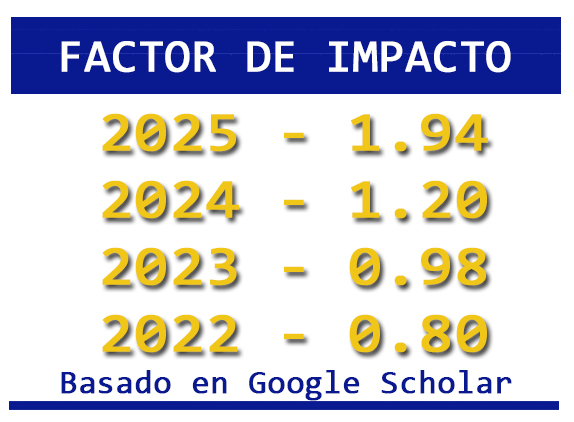ALFABETIZACIÓN AMBIENTAL EN ESTUDIANTES DE INGENIERÍA DE LA UNIVERSIDAD DE SONORA
DOI:
https://doi.org/10.36790/epistemus.v11i23.55Abstract
La presente investigación muestra el nivel de alfabetización ambiental de los alumnos de la División de Ingeniería de la Universidad de Sonora en cuanto a las variables: actitud ambiental, conducta ambiental y conocimiento ambiental, derivados de la aplicación de un instrumento de investigación diseñado por el Centro de Educación Ambiental en Wisconsin (WCEE), E.U.A. de ingeniería es bajo (58.79%); mientras que el análisis por componentes ambientales, indica que el nivel de actitud ambiental fue de 71.76%; en cambio en conducta ambiental y conocimiento ambiental se obtuvieron valores promedio de 47.69% y 56.92% respectivamente. Asimismo, se muestra el análisis de los resultados por género.
Downloads
References
Owen, O. (2000). Recursos naturales. (e-book) Nueva York: The Macmillan Company. Disponible en: Google Books http://books.google.es/books?id=0Z_KmG0yOvEC&pg=PA1&dq=dilema+ambiental&hl=es&sa=X&ei=tXvoUZX_BJPQ8wTdu4FI&ved=0CDsQ6AEwAg (Accesado 23 de Junio del 2013)
Corral, V. (2010). Psicología de la sustentabilidad. Hermosillo: Universidad de Sonora. Editorial Trillas, ISBN
Macedo, B., y Salgado, C. (2007). Educación ambiental y educación para el desarrollo sostenible en América Latina, Forum de sostenibilidad (online) Disponible en: http://www.ehu.es/cdsea/web/revista/numero_1/01_03macedo.pdf (Accesado 3 de Julio del 2013)
UNGS (2005). United Nations Decade of Education for Sustainable Development. UN, A/RES/59/237
UNESCO (2005). International implementation scheme for the UN decade of education for sustainable development (2005-2014). UNESCO International Science, Technology & Environmental Education Newsletter, 30, 1-1.
Bravo, M.M.T. (2012). La UNAM y sus procesos de ambientalización curricular. Revista Mexicana de Investigación Educativa, 17, 1119-1146.
Escobar, M.S. (2012). Comportamiento sustentable y educación ambiental: una visión desde las prácticas culturales. Revista Latinoamericana de Psicología, 44, 181-196.
Vega, M. P. y Álvarez, S.P. (2005). Planteamiento de un marco teórico de la educación ambiental para un desarrollo sostenible. Revista electrónica de enseñanza de las ciencias, 4 (1).
Isaac-Márquez, R., Salavarría, O., Eastmond, A., Ayala, M., Arteaga, M., Isaac-Márquez, A., Sandoval, V., Manzanero, A. (2011). Cultura ambiental en estudiantes de bachillerato. Estudio de caso de la educación ambiental en el nivel medio superior de Campeche. Revista Electrónica de Investigación Educativa, 13(2), 83-98.
Serna, R.A. (2007). El derecho a un ambiente sano y la pedagogía ambiental. Revista El Ágora USB, 7, 345-359.
Zimmermann, M. (2005). Ecopedagogía: el planeta en emergencia. Bogotá: Ecoe ediciones.
Puertas, V. S. y Aguilar L. M. C. (2008). Psicología ambiental. Departamento de Psicología. Universidad de Jaén. Recuperado de http://www4.ujaen.es/~spuertas/Private/Tema%209.pdf
Febles, M. (2001). Bases para una Psicología Ambiental en Cuba. Facultad de Psicología. Universidad de La Habana.
Courtney, N. (2002). An analysis of the correlations between the Attitude, Behavior, and knowledge, components of Environmental Literacy in undergraduate university students. Recuperado de http://ufdc.ufl.edu/UF00100691/00001
Montaño S., Cervantes B., Gutiérrez C., Zarate O. (2012). Alfabetización Ambiental en estudiantes de ingeniería en ciencias ambientales del Instituto Tecnológico de Sonora, Revista Desarrollo Local Sostenible. Obtenido en Noviembre 5, 2013, dehttp://www.eumed.net/rev/delos/14/sbco.pdf
Downloads
Published
How to Cite
Issue
Section
License

This work is licensed under a Creative Commons Attribution-NonCommercial-NoDerivatives 4.0 International License.
The magazine acquires the patrimonial rights of the articles only for diffusion without any purpose of profit, without diminishing the own rights of authorship.
The authors are the legitimate owners of the intellectual property rights of their respective articles, and in such quality, by sending their texts they express their desire to collaborate with the Epistemus Magazine, published biannually by the University of Sonora.
Therefore, freely, voluntarily and free of charge, once accepted the article for publication, they give their rights to the University of Sonora for the University of Sonora to edit, publish, distribute and make available through intranets, Internet or CD said work, without any limitation of form or time, as long as it is non-profit and with the express obligation to respect and mention the credit that corresponds to the authors in any use that is made of it.
It is understood that this authorization is not an assignment or transmission of any of your economic rights in favor of the said institution. The University of Sonora guarantees the right to reproduce the contribution by any means in which you are the author, subject to the credit being granted corresponding to the original publication of the contribution in Epistemus.
Unless otherwise indicated, all the contents of the electronic edition are distributed under a license for use and Creative Commons — Attribution-NonCommercial-ShareAlike 4.0 International — (CC BY-NC-SA 4.0) You can consult here the informative version and the legal text of the license. This circumstance must be expressly stated in this way when necessary.
The names and email addresses entered in this journal will be used exclusively for the purposes established in it and will not be provided to third parties or for their use for other purposes.















